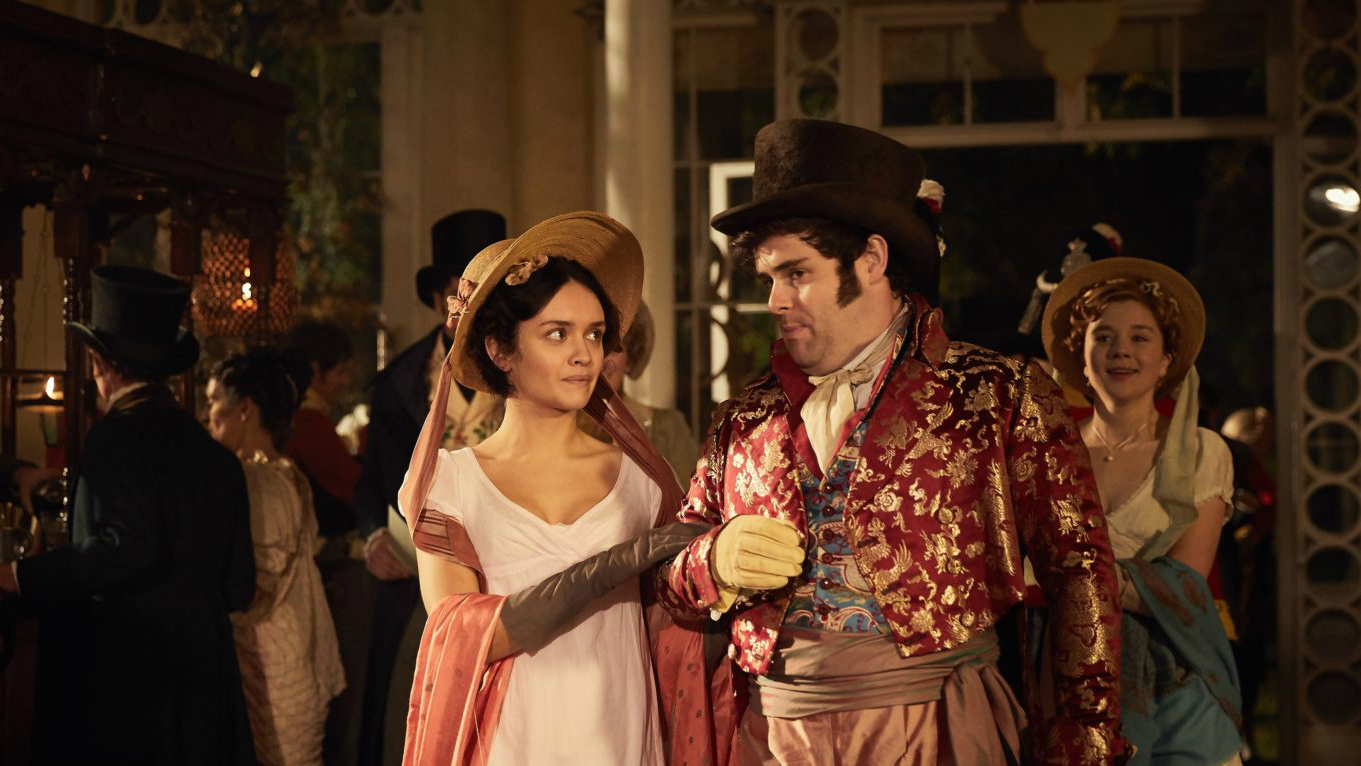How different is ITV’s Vanity Fair from the book?
The adaptation of William Makepeace Thackeray’s classic 1848 novel is given a few modern flourishes to mixed critical reception

A free daily email with the biggest news stories of the day – and the best features from TheWeek.com
You are now subscribed
Your newsletter sign-up was successful
ITV’s latest period drama Vanity Fair premiered last night at 9pm, with critics and viewers divided about the modern touches given to the classic source material.
The new show, based on William Makepeace Thackeray’s classic 1848 novel of the same name, tells the story of Becky Sharp, a “heroine of dubious parentage who attempts to scale the heights of English society during the Napoleonic Wars, eventually earning an audience with King George IV”, write Digital Spy. It stars Olivia Cooke and Tom Bateman.

Originally released as a nine-volume monthly serial, the novel has become revered as a British classic, and was voted one of the UK’s favourite novels of all time in a 2003 BBC poll.
The Week
Escape your echo chamber. Get the facts behind the news, plus analysis from multiple perspectives.

Sign up for The Week's Free Newsletters
From our morning news briefing to a weekly Good News Newsletter, get the best of The Week delivered directly to your inbox.
From our morning news briefing to a weekly Good News Newsletter, get the best of The Week delivered directly to your inbox.
“Vanity Fair feels like the perfect classic to adapt for ITV, and Gwyneth Hughes’ stunning scripts bring the novel to life in a way that will really connect with a modern audience,” promised Polly Hill, the head of ITV drama.
But how similar to the original is this adaptation?
“Generally, the first episode, titled Miss Sharpe in the Presence of an Enemy, sticks close to the first six chapters of Thackeray’s novel,” says the Daily Express.
However, there is one crucial difference, adds the newspaper: “In the novel, the framing device of the story is a puppet show. Episode one, in contrast, begins and ends with the characters on a carousel.”
A free daily email with the biggest news stories of the day – and the best features from TheWeek.com
The TV drama also skips the book's flashback to the childhood of William Dobbin, when he goes from school outcast to school hero for fighting the bully of his friend George Osborne.
The show has taken a number of stylistic liberties related to the period setting, drawing praise and criticism in equal measure.
Radio Times says the adaptation “stays very true to the plot and characters of his novel”, but that “there’s something very fresh” about the drama.
There has been criticism for a “vast number of anachronisms, such as the featuring of electric bulbs and its pop music soundtrack”, along with modern language, says The Daily Telegraph.
One “major blunder” in the first episode was the use of a building with uPVC windows in the opening titles, says the Daily Mail.
Nevertheless, the Telegraph’s TV writer Ben Lawrence suggests that “it’s time we learnt to love anachronisms in period drama” and that “these little things may niggle but I don’t think they are enough to spoil one’s enjoyment” of the show.